Some of the most beautiful work of this craftsman, and many others, are in this book “Liège Gunmakers through their Work. 1800 - 1950”.
For more detail see: LIEGE GUNMAKERS
BERNARD Victor
This is a fine
revolver with ivory grips (in all likelihood), a cap ring, a retractable
trigger, and an elegant overall design due in particular to its long octagonal
barrel. It opens by tilting downward, which activates its circular collective
extractor. The caliber is not mentioned, but the appearance of the chambers
suggests a fairly large caliber, probably equal to or larger than 9 mm (probably
.450, 11 mm, or 12 mm).
Identifiable markings:
Number 226 (left
side), probably serial number.
Acier fondu (Cast
steel) (right side).
ELG over a star in an
oval (barrel), Liège proof house mark from September 8, 1846, to July 11, 1893.
L surmounted by a
crown (barrel and frame), inspector's mark from December 30, 1853, to January
26, 1877.
V. Bernard brevet
(left side). This is likely Victor Bernard (or Victor Bernard & Cie), see the
website.
Victor Bernard was a
gunsmith registered with the proof house from 1873 to 1881. He filed 11 patents
for shotguns and revolvers. The firm Victor Bernard & Cie is almost certainly an
evolution of the same entity, with proof registration from 1890.
The patents filed in
Belgium relating to revolvers are listed below, and were undoubtedly the basis
for the design of the example examined here:
No. 31100 – August 26,
1872 Revolver system.
No. 32275 – March 29,
1873 Safety trigger system applicable to revolvers.
No. 32988 – July 26,
1873 Improvements made to the revolver system with a lock and cartridge release,
applicable to all other types of revolvers.
The Liège Arms Museum
owns a Victor Bernard 6-round revolver in .450 caliber. The extractor acts on
half of the outer periphery, while the central part of the cylinder remains
fixed. The slide locks above the breech using a sliding bolt, operated directly
by a button located at the bottom.
Except for its trigger
guard, this revolver appears virtually identical to the one examined here.
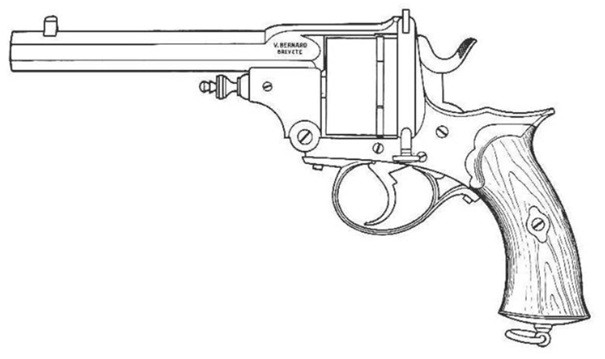
In conclusion, this beautiful revolver, probably in .450
caliber, was manufactured in Liège by the craftsman Victor Bernard. It was
designed based on patents dating from 1873. According to the markings, it can be
estimated that it was manufactured before 1877.
Chris, HPH
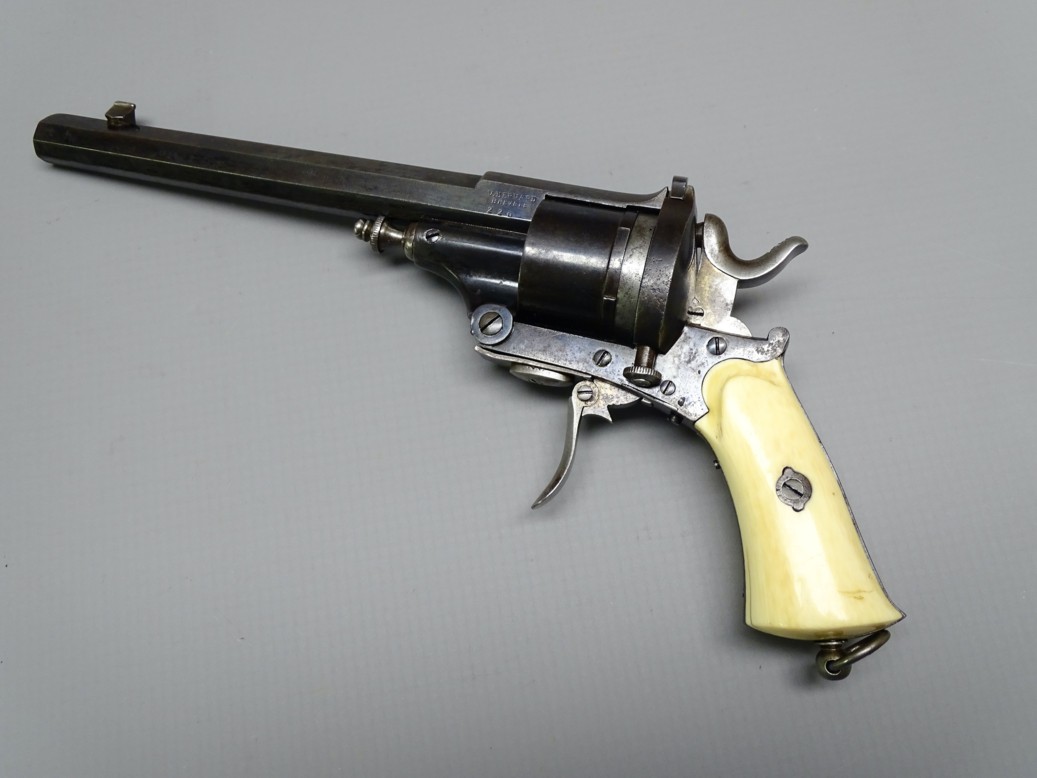
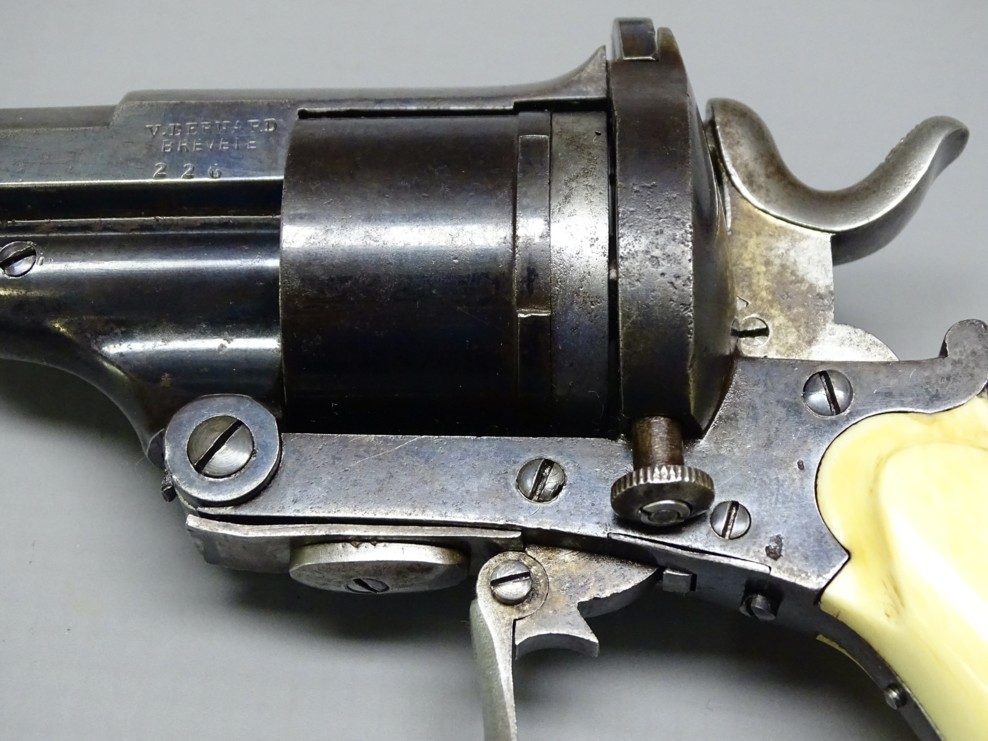
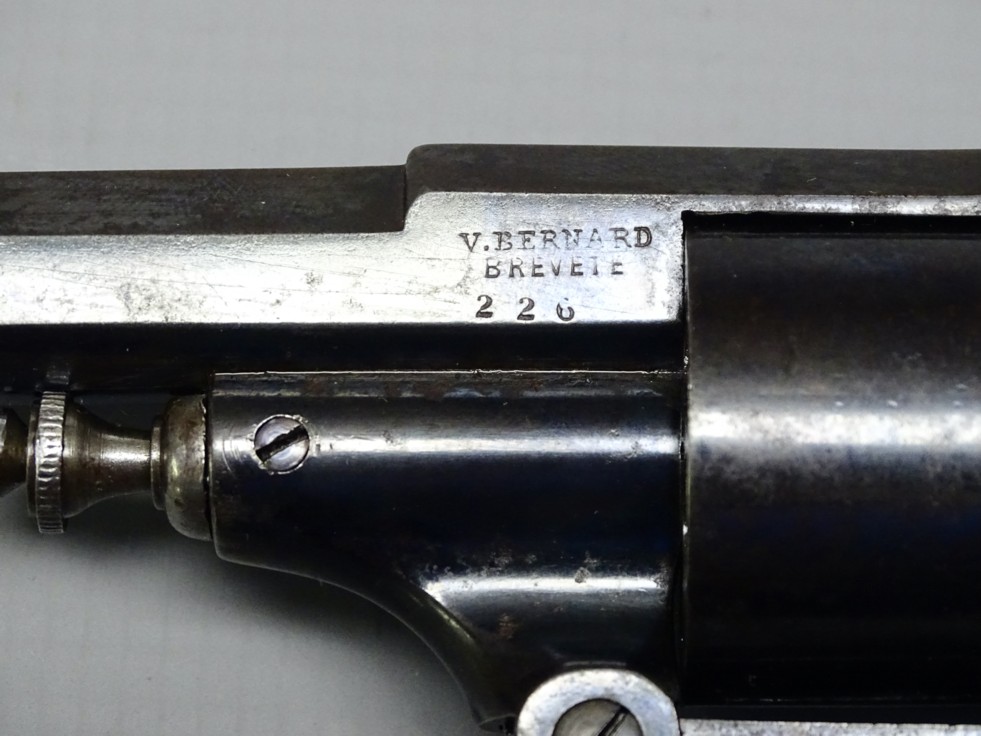
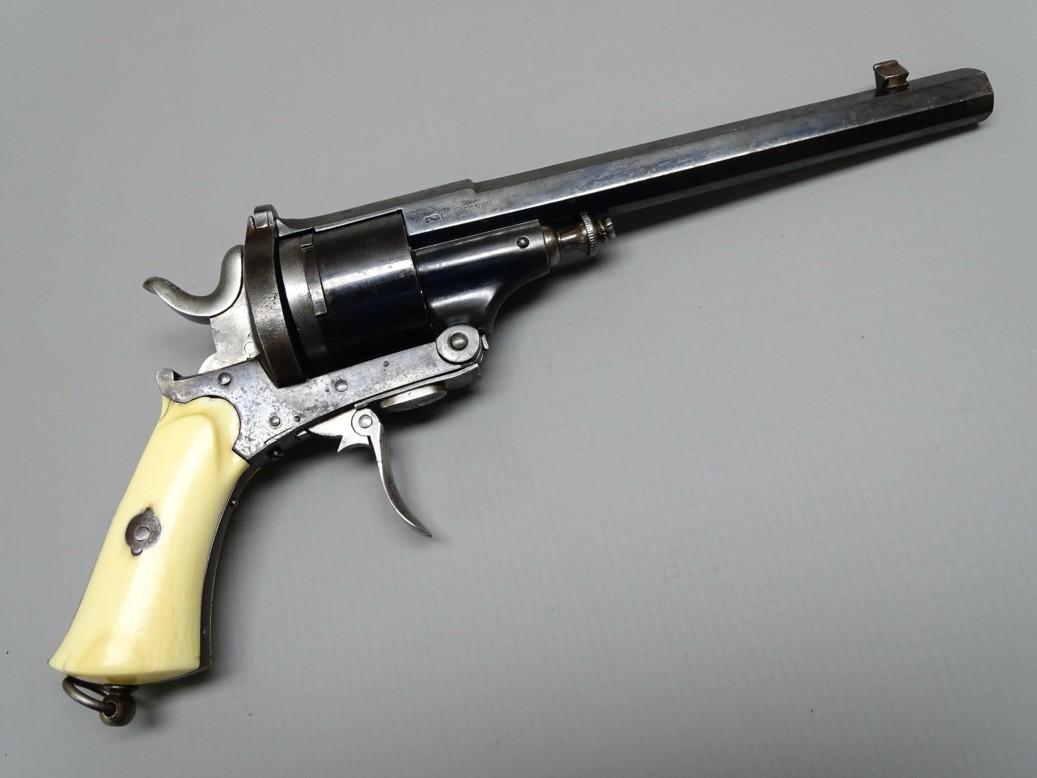
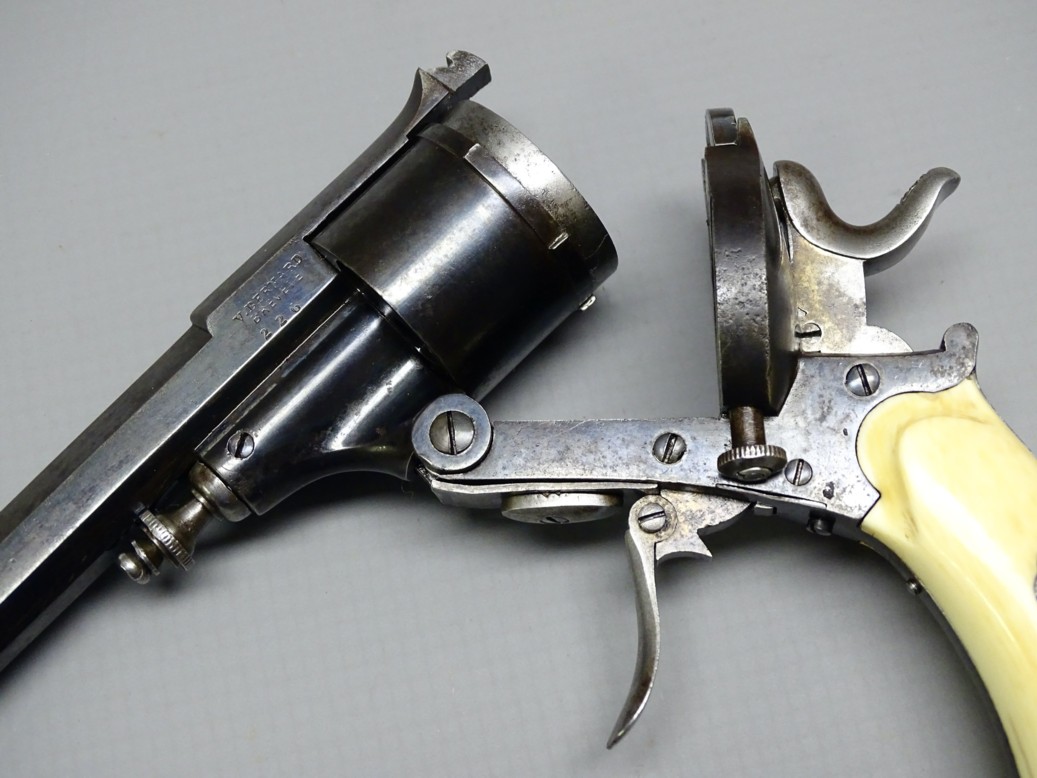
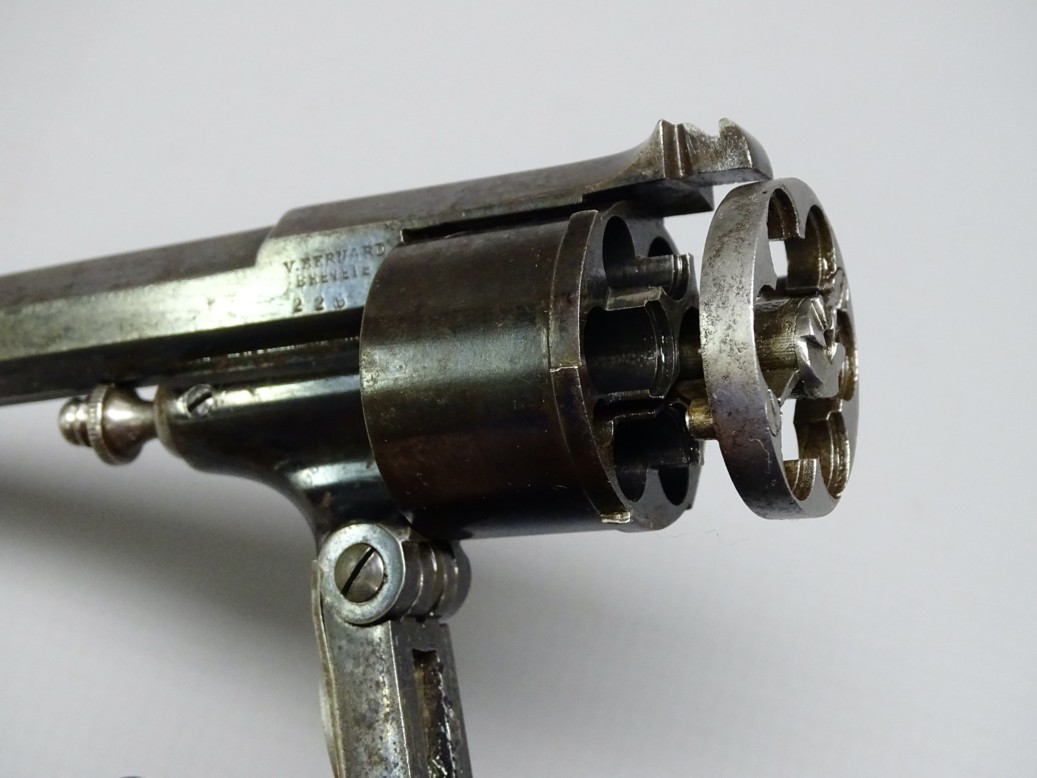
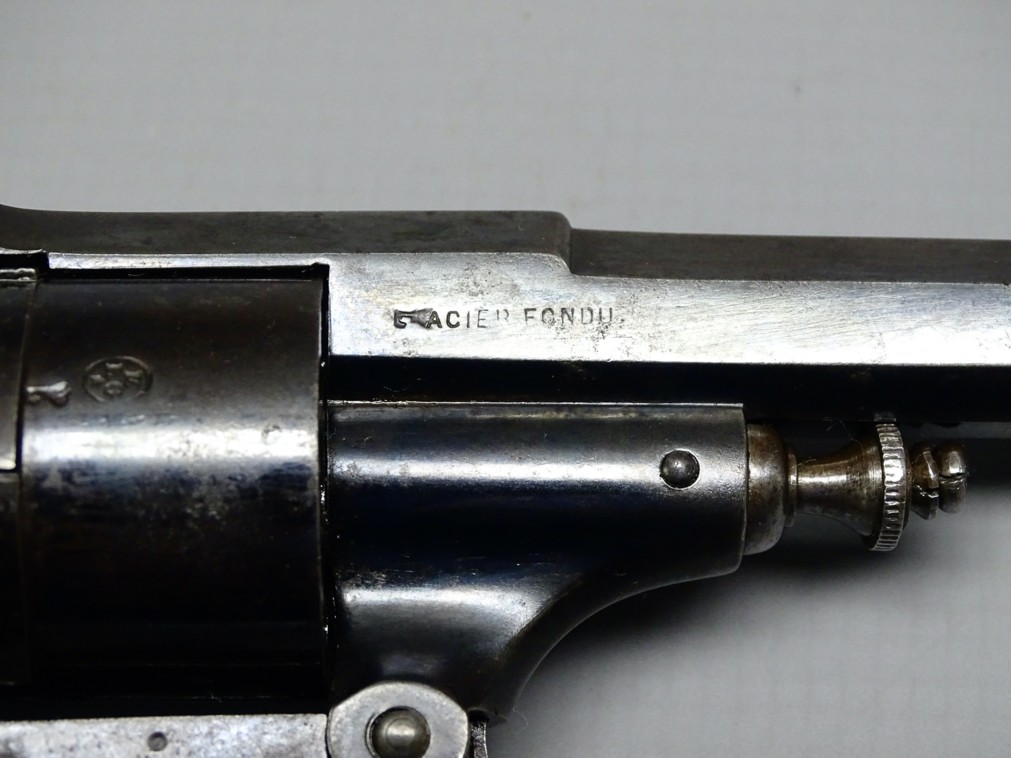
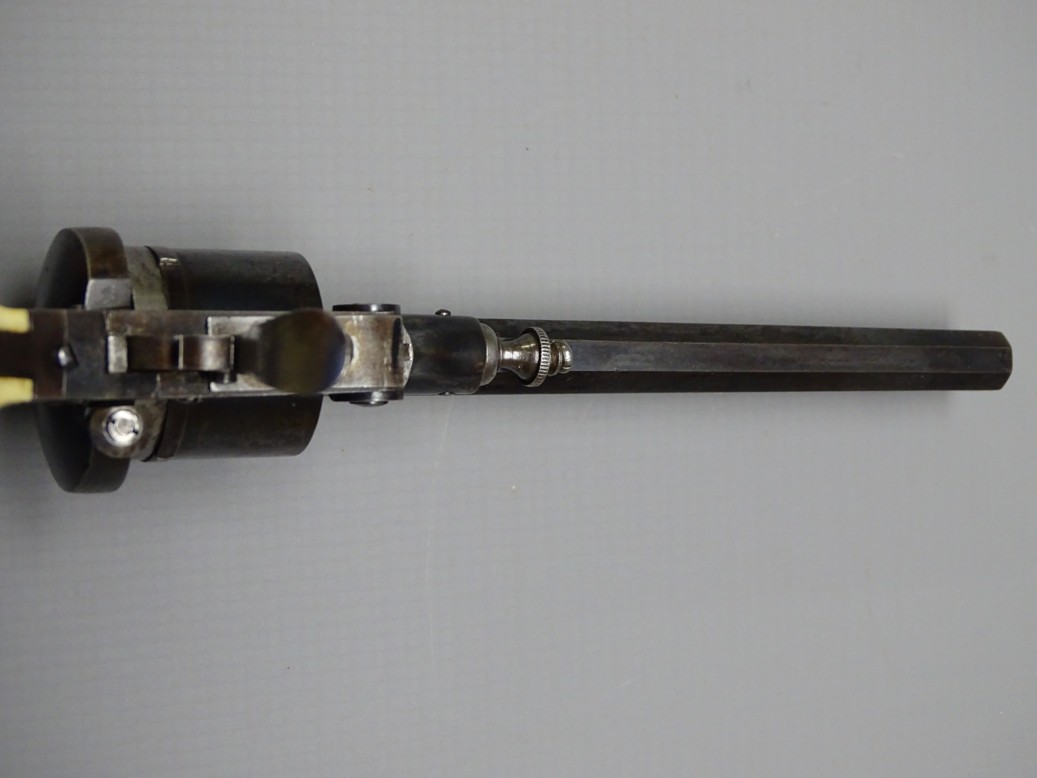
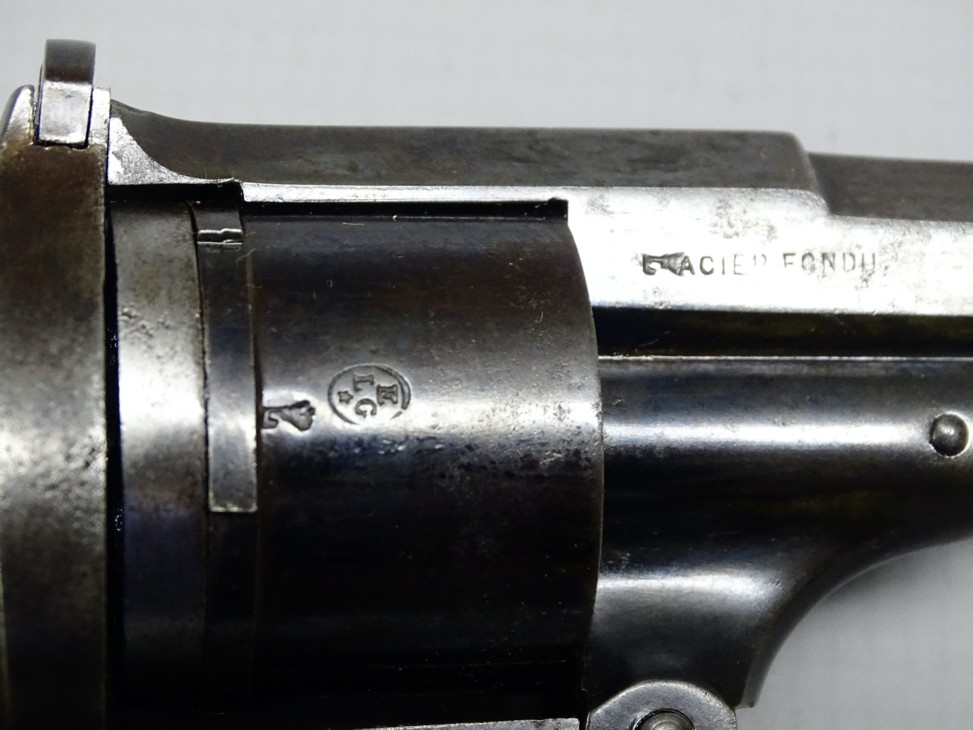
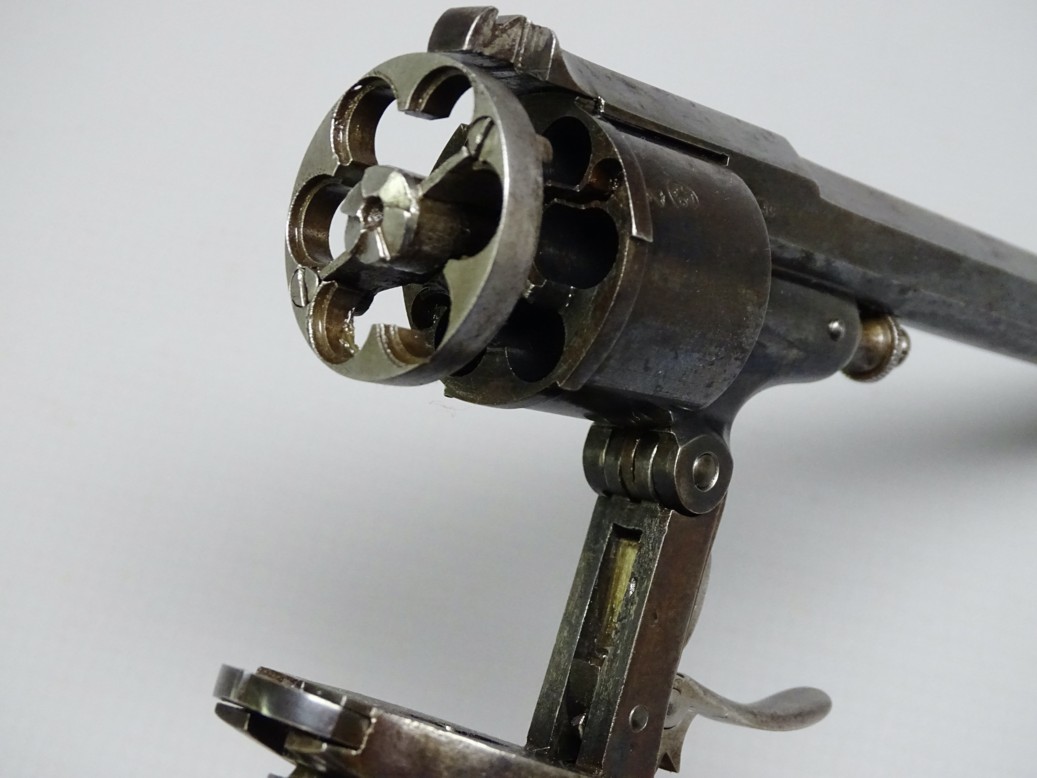
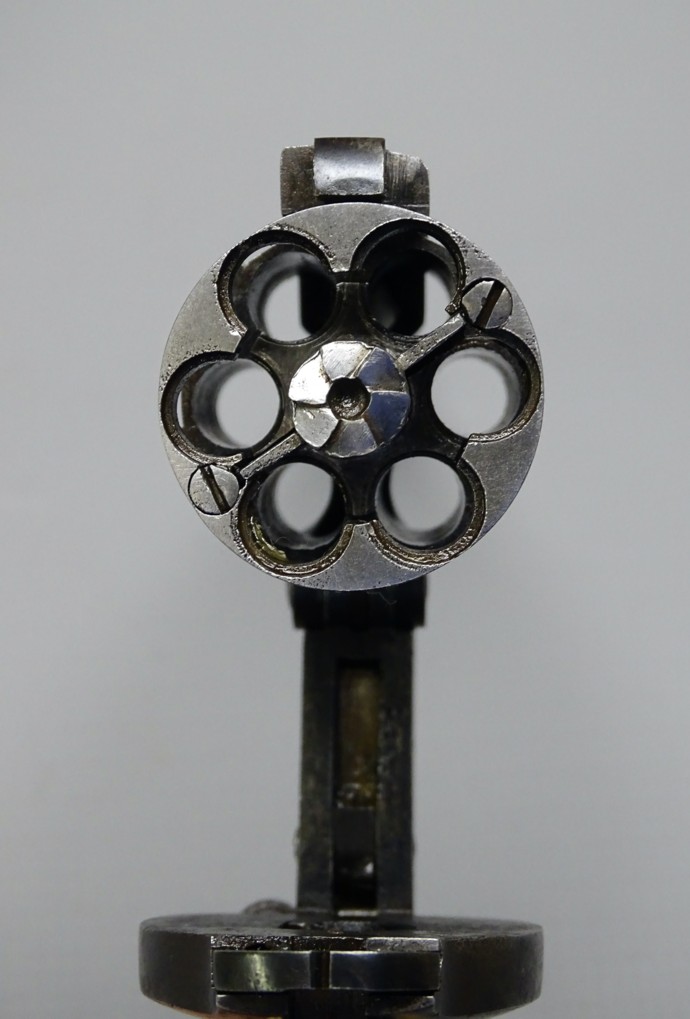
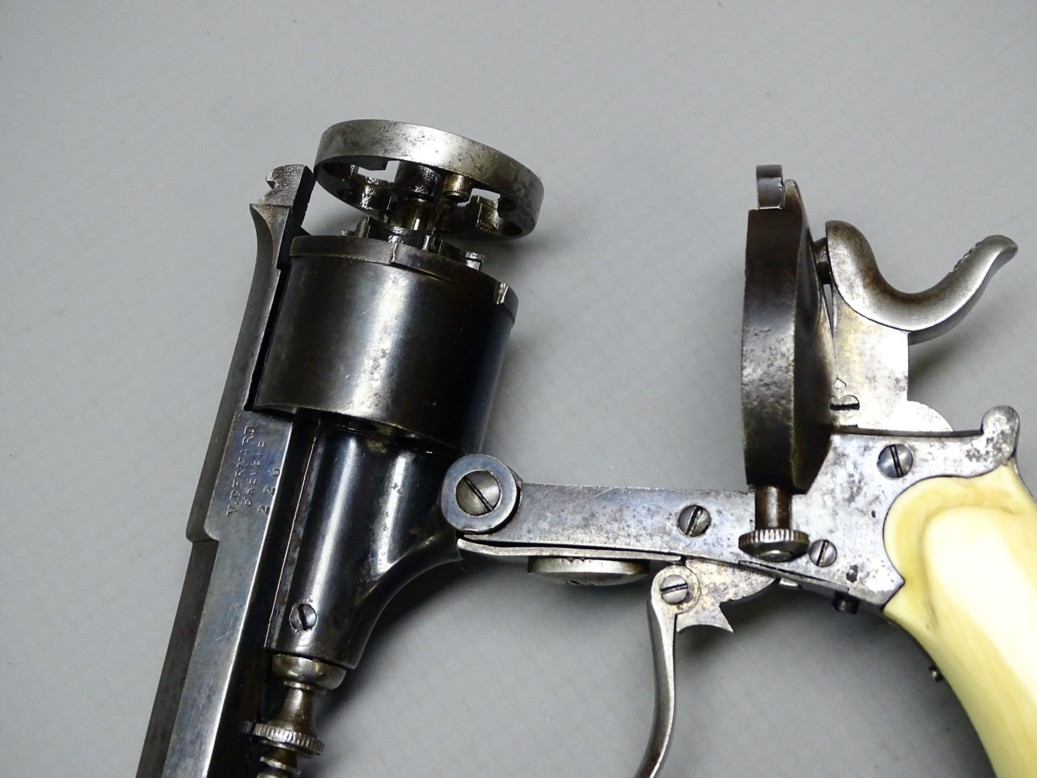
BERNARD Victor
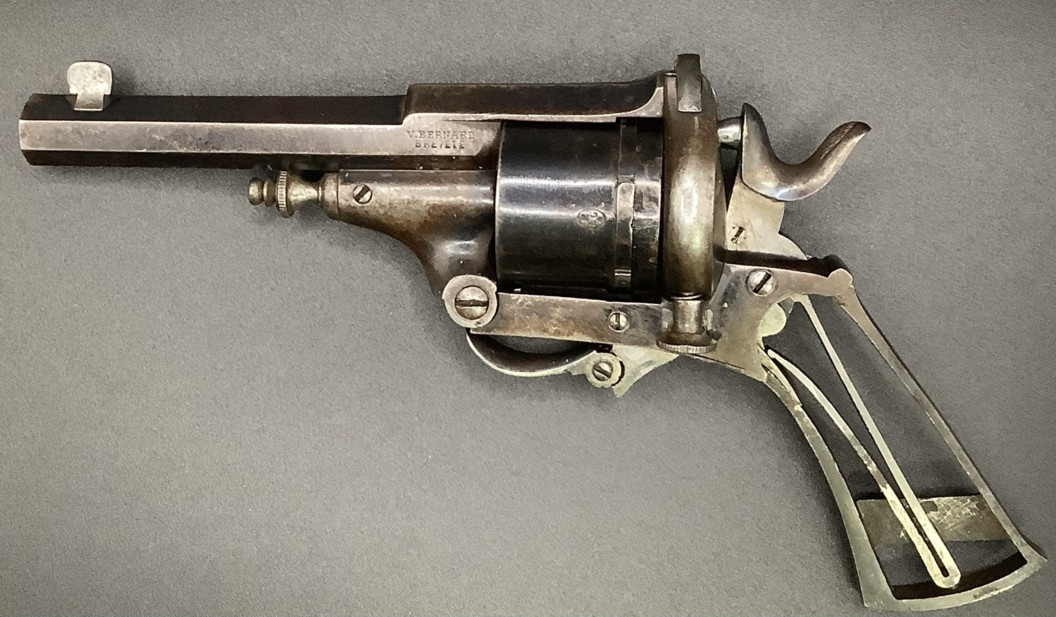
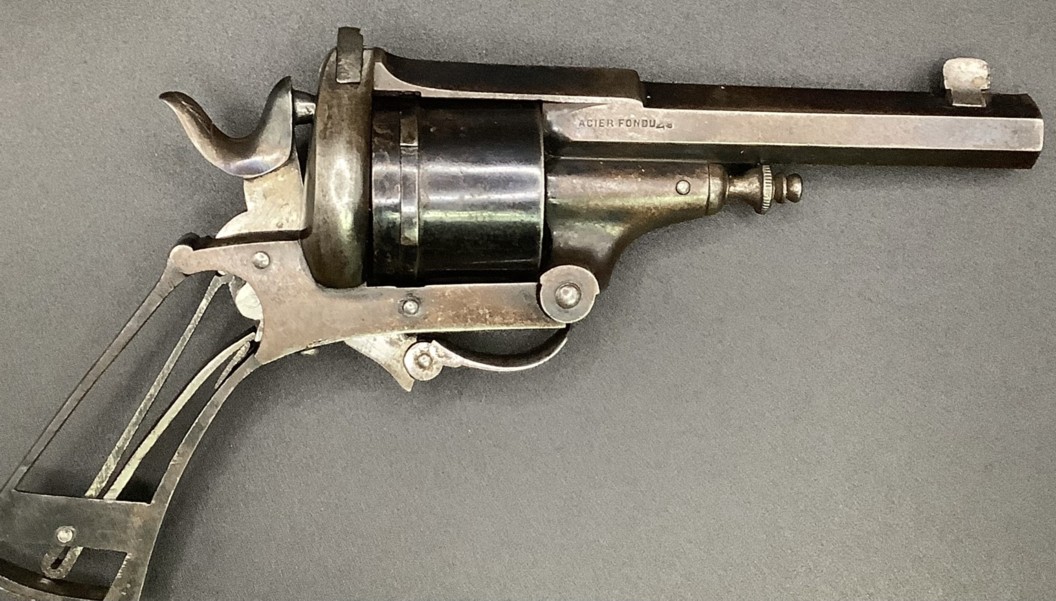
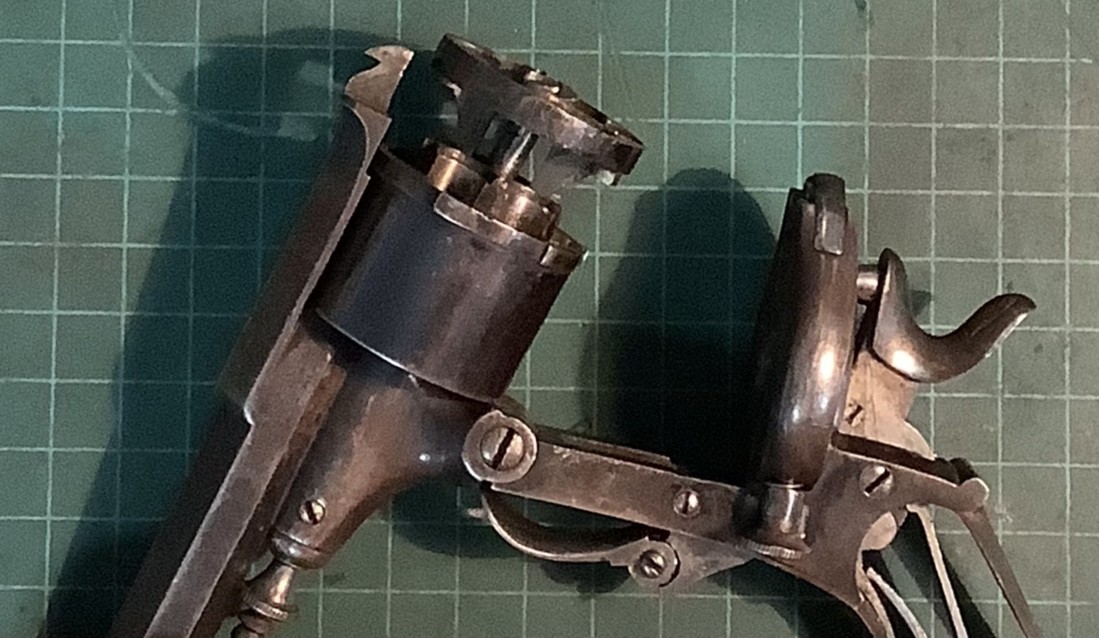
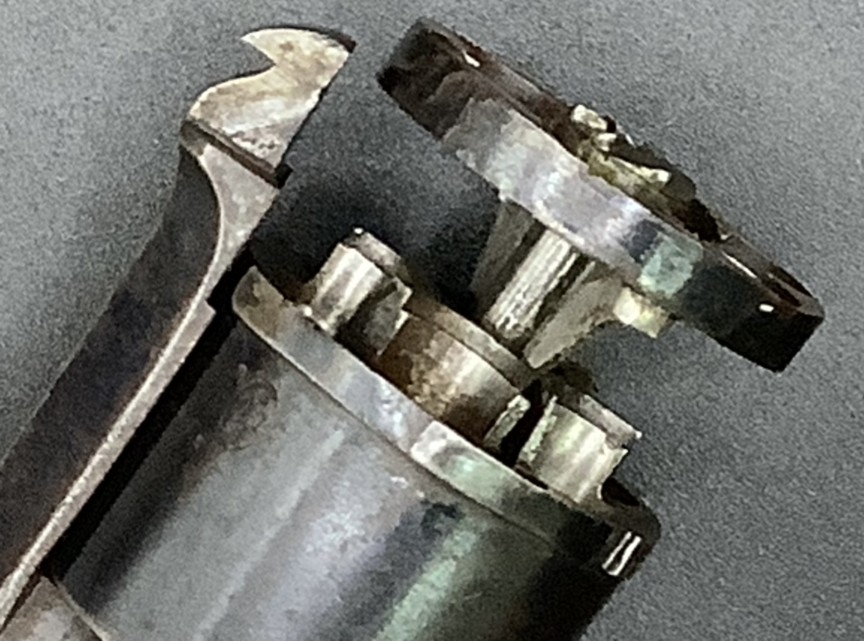
BERNARD Victor & Cie
Your rifle which seems to be a beautiful collector's item, is a double barrel side-by-side pinfire shotgun, with smooth bore Damascus barrels.
The flat head external hammers are mounted of back action locks.
The gun opens by a double Lefaucheux key located under the barrels.
The majority of the metal parts are deeply engraved with floral motives.
''Volute'' fancy trigger guard and “English type'' stock equipped with a long decorated support partly ensuring the rigidity of the locking system of the gun.
Stamped with the marks of the Liege Proof Hose, namely:
STAR/ ELG in an oval: final acceptance, used from 1846 to 1893.
STAR/W : counter mark of the controller- post 1877.
Perron: inspection stamppost 1853.
Your shotgun was therefore manufactured between 1877 and 1893.
The only manufacturer marking:BERNARD Bte, found on this gun, is Gold inlaid on the barrels; this mark can be attributed to the manufacturer of the Damascus barrels or to the manufacturer of the weapon.
The problem is that gunsmiths named BERNARD are comparatively numerous in Liege Ca. 1877/1893 and that without a first name it is quite impossible to attribute the weapon to a manufacturer in particular .
Most credible would be:
BERNARD Victor, registered with the proof house from 1873 to 1881. He registered 11 patents related to shotguns and revolvers.
BERNARD Victor & Co (Prooof house 1890/1891)
BERNARD & Co (Prooof house 1881/1882)
These three firms seem to be only one, only the corporate name changed.
GG